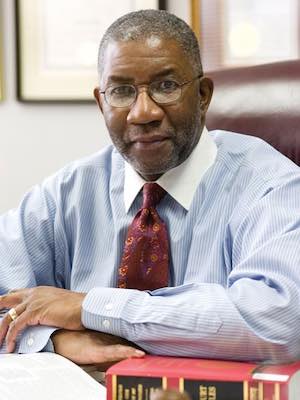
What is the “Great Commission”? And why is it controversial?
Matthew Smaltz, a Roman Catholic religious studies professor at Holy Cross College in Massachusetts, addressed these questions in a February 2019 article published by The Conversation. He shared three interesting observations:
- A 2019 survey indicated that a majority of church-going American Christians are unfamiliar with the term “the Great Commission.”
- Of the minority of church-going American Christians who recognized the “Great Commission” term, 25% could not explain what it was.
- Only 17% (meaning fewer than one in five) of the people who participated in the survey and were familiar with the term “Great Commission” knew what it means.
The “Great Commission” is an interpretation of what Jesus said to his closest early followers at the end of Matthew 28. Briefly, Jesus told them to go to “all nations,” make disciples, baptize them and teach them to follow his commandments.
The Greek word for disciple (mathetes) means “pupil” or “follower,” as in “follower of Jesus.” Baptism is a Christian ritual where new Christians are either immersed, sprinkled or have water poured on them to mark their entrance into the faith.
That’s not controversial. Every religion or creed has a ritual for new initiatives and expects its adherents to follow the teachings of its founder(s).
It is not unusual for followers of a creed to spread the message of their creed and invite others to embrace it. However, we should understand that the term “Great Commission” does not appear in the Bible. Jesus didn’t use it.
So, what is “the Great Commission”? How did that term become associated with the religion of Jesus? And why should anyone be troubled if the “Great Commission” is mis-identified with the life and ministry of Jesus?
The term “Great Commission” did not appear until the 17th century of the Christian era, when Baron Justinian Von Welz, a Lutheran, asserted that all Christians, rather than only the closest followers of Jesus, were required to spread the faith.
Von Welz created a missionary organization called the Jesus Loving Society for the purpose of spreading Protestant Christianity throughout the world. Two hundred years later, an English missionary named Hudson Taylor, inspired by the “Great Commission” idea, founded the China Inland Mission in 1866 to bring Christianity to China’s inland provinces.
The New Testament contains accounts about Jesus traveling to different areas in Palestine to teach and preach, sending his followers (including 70 persons on one occasion), the missionary journeys of Paul in Acts, and letters attributed to Paul and other apostles to Jesus-followers in various communities across the Mediterranean region.
That happened hundreds of years before the “Great Commission” term arose. In each of those experiences, the teaching, preaching and missionary work became a new aspect of religious diversity.
In Acts 2, we read that the early followers of Jesus practiced a religion that emphasized communal learning, worship, sharing meals and sharing resources.
They studied together, worshiped, shared meals together and pooled their resources as a community of like-minded souls to care for one another. That is how their numbers grew as followers of Jesus appeared in new areas.
The early followers of Jesus were peacemakers. They were not using the religion of Jesus as a way to get business. They were not using the religion of Jesus as an excuse for going to war, invading other societies and oppressing people in other societies.
The Jewish majority argued among themselves about how to treat Gentile followers of Jesus. But they were not trying to overcome or stamp out other religions. They did not try to conquer other religions, let alone other societies.
In the beginning, the religion of Jesus was not complicit with an empire. In the beginning, followers of Jesus did not collaborate with an empire. They did not seek favor or solicit benefits from any empire.
Instead, they were trying to be a community of God-loving and neighbor-loving people in the world without trying to be identified with “the kingdoms of this world” for centuries before the term “Great Commission” arose.
But from the time that Constantine declared Christianity to be the religion of the Roman Empire and himself to be the head of the church, the name and religion of Jesus has been perverted – yes, I used that word – as a cover for expanding systems of European empire.
The Christian “discoverers” and “pilgrims” who undertook sea voyages to what they called “the New World” did not come to establish community with other children of God. They came to establish colonies for commercial and political despots. They viewed the indigenous people of Africa, Asia and the Americas as “godless.”
The “Great Commission” is controversial because the religion of the “Great Commission” is about Eurocentric – meaning white – Christian conquest, commerce, colonization, domination and superiority.
It is the religion of missionaries and preachers funded by commercial and political tyrants as a way to further notions of empire rather than embrace and become a beloved community of all persons and the creation in God’s love, peace, generosity, hope and justice.
The religion of the “Great Commission” is the religion of briars, scorpions, thorns and thistles— not grapes, olives, joy and healing.
That is why the “Great Commission” has a troubling meaning for many people, including myself.
Editor’s note: This is the first of a two-part series. Part two will appear tomorrow.
Pastor at New Millennium Church in Little Rock, Arkansas, a retired state court trial judge, a trustee of the Samuel DeWitt Proctor Conference, author of one book and three blogs, a consultant on cultural competency and inclusion, and a contributing correspondent at Good Faith Media.

